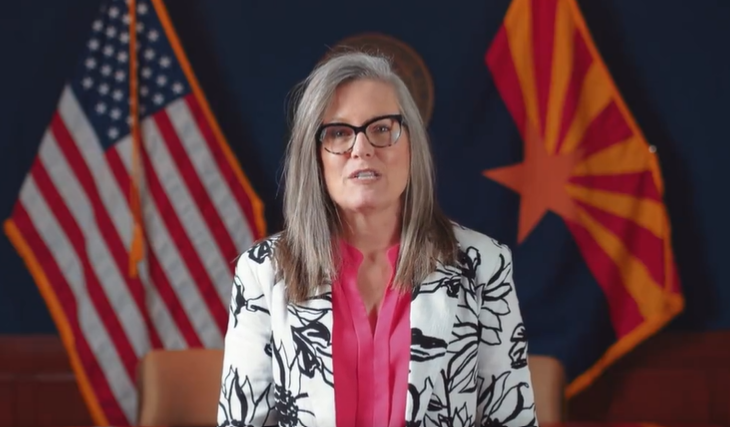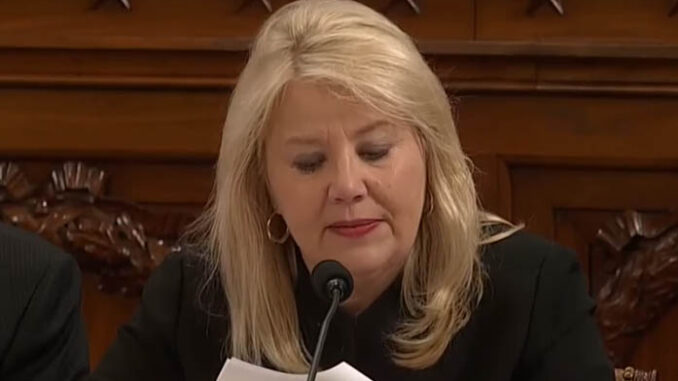
by Matthew Holloway | Jan 6, 2025 | News
By Matthew Holloway |
The National Retail Federation (NRF), in partnership with the Loss Prevention Research Council, reported that nationwide shoplifting has increased by an astronomical 93% when compared to 2019 figures. The incidence of shoplifting is up 26% over 2023 numbers. According to the NRF’s, “Impact of Retail Theft & Violence 2024,” retailers participating in the study logged 177 shoplifting incidents per day in 2023. On some days, that number would spike to over 1,000. In addition, 73% of the retail outlets surveyed warned that shoplifters are acting with significantly increased violence and aggression than in 2019.
David Johnston, NRF vice president of asset protection and retail operations, told FOX Business, “This isn’t what we were used to. This isn’t the shoplifting I was apprehending 30 years ago. These are people who are shoplifting because they know when they have an outlet to sell this merchandise to.”
Referring to the onset of organized retail shoplifting groups that resell stolen goods, he said, “Not every shoplifter is going out there and selling their stolen goods online or at a flea market. They’re selling them in larger mass quantities to these local, regional or transnational organizations who are helping to feed the system.”
In Arizona, the opposite seems to be true. Shoplifting is down according to Department of Public Safety statistics from 41,519 incidents in 2019 to 34,587 in 2023, a decrease of approximately 17% with incomplete data for 2024 showing just 29,832 incidents. Maricopa County Attorney Rachel Mitchell told Fox 10 that in 2023, her office received approximately 600 submittals for the charge of organized retail theft. Mitchell warned at the time that the number was increasing.
“Arizona, specifically Maricopa County, will not tolerate this type of offense that is driving retailers to close stores, to hurt the communities that the stores are located in, and driving people out of business,” Mitchell told the outlet.
The NRF report shows that retailers who are capable of tracking organized retail theft saw a 57% increase on average in these incidents from 2022 to 2023. The organization is advocating for the passage of the Combating Organized Retail Crime Act, which would increase federal level coordination with state and local level law enforcement.
Matthew Holloway is a senior reporter for AZ Free News. Follow him on X for his latest stories, or email tips to Matthew@azfreenews.com.

by Matthew Holloway | Jan 5, 2025 | News
By Matthew Holloway |
On February 27, 1968, President Lyndon Baines Johnson was said to have listened to a devastating report by anchorman Walter Cronkite who assessed the Vietnam War as “to end in a stalemate.” According to Westpoint’s Modern War Institute, David Halberstam wrote in his 1979 book, “The Powers That Be,” that Johnson told press secretary, George Christian, “that if he had lost Walter Cronkite he had lost Mr. Average Citizen.”
Similarly, Arizona Democrat Governor Katie Hobbs appears to have lost Arizona Republic columnist Laurie Roberts. In the columnist’s “10 awards for the best of the worst in Arizona politics in 2024,” Hobbs was named “Biggest Loser.”
In the article where she in turn condemns Arizona’s Republican 2020 alternate electors, former New York City Mayor Rudy Giuliani, State Senator Justine Wadsack, State Representative Austin Smith, and former AZGOP Chair Jeff DeWitt, Roberts called out Hobbs’ catastrophic failure to flip the Arizona Legislature and wrench control of the government from the GOP.
As Roberts noted, “Instead, she lost two seats in the House and one in the Senate, and now faces the most conservative Legislature of our time … maybe even any time.”
The AZCentral columnist went on to observe that the increased majority in both houses of the legislature will likely spell trouble for the embattled Democrat, who finds herself at the lowest point of her favorability, 36%. But it doesn’t end there. As Citizens For Free Enterprise Press Secretary Dan Coulson noted in a late November post to X, Hobbs is also a “Target of 2 separate criminal investigations,” with an undoubted primary challenge on the horizon.
Roberts went on to prognosticate that the Trump administration would seek to characterize Hobbs as “out-of-touch with everyday Arizonans.” However, it seems likely that Trump will be more concerned with expanding the House GOP majority in Arizona, seeking to exploit any weaknesses in the Arizona House Democrats Caucus. One could imagine a concerted effort to oust Rep. Greg Stanton (D-AZ-04) who enters his third term in the House in January by a slim 7.2 point margin.
The gubernatorial challenge is bound to be far more of a concern for the Republican National Committee and the Republican Governors Association—though the President is likely to weigh in as he’s wont to do.
For now, Roberts’ assessment of Hobbs as 2024’s “Biggest Loser” appears to be apt, and the ghost of Walter Cronkite may have claimed another Democrat.
Matthew Holloway is a senior reporter for AZ Free News. Follow him on X for his latest stories, or email tips to Matthew@azfreenews.com.

by Matthew Holloway | Jan 4, 2025 | Economy, News
By Matthew Holloway |
Arizona renters and landlords alike will get to breathe a sigh of relief this month when the Transaction Privilege Tax (TPT), applied by cities to rental payments every single month, is eliminated. While the cities that will no longer enjoy this source of tax revenue and lobbying groups like the League of Arizona Cities and Towns cry foul, local Republicans who pushed for the reform and the renters who pay it are celebrating.
Seventy-five cities across the state charge TPT on rentals ranging from 1.5% to 4%. Depending on rental rates, this could mean monthly savings of about $20-$50 per month based on estimates.
In a statement posted to X in November, Arizona Senate President Warren Petersen touted the tax elimination writing, “Its happening. Renters are about to get relief from the rental tax repeal passed by the Republican led legislature. The rental tax repeal was an important part of our majority plan to deliver inflation relief. To get the governors signature we had to delay the effective date to Jan 1 2025. Many people said the Dems would take the majority and put the tax back in place. Fortunately for renters we held the Senate and the House. Here is an email from a property manager letting the tenants know their rent will be going down.”
Jake Beeson of Beehive Property Management told AZFamily, “It’s going to mean quite a bit for some tenants. We work with the Community Housing Partnership as one of our clients, which has low-income housing, and those rents are between $900 and 1,000 a month. So for a low-income family to have a 2% discount every month doesn’t sound like a lot, but if you’re paying $900 in rent every month, that’s $18. $18 is a whole month of discounted lunches at your kid’s school.”
The outlet noted that the rates in the valley can range from 2% in Mesa to 2.3% in Phoenix or 3% in Cave Creek. Some cities charge as much as 4%.
But not everyone sees the rental tax relief as a positive. Lee Grafstrom, a tax policy expert with the League of Arizona Cities and Towns told Fox10, “You’re not cutting any of the services that citizens are requesting and requiring, so, we still have to do all the same amount of work. We just have this much less money to do it.”
He stressed that cities could find themselves in budget shortfalls, expecting a combined loss of $230 million in tax revenue annually.
“We have to find a way to either cut services or make up that shortfall,” Grafstrom told Fox10. “This is a minor piece of a solution to a much larger problem, in terms of housing affordability.”
The League said in a statement, “Cities and towns across the state are facing a loss of over $230 million in their budgets, which support essential services like police, fire, parks, and more. Without state funding to make up for these losses, local governments will be forced to make tough decisions to balance their budgets, such as cutting jobs and services or raising local taxes—both unpopular choices. Local leaders are working to address these challenges before the repeal takes effect in January.”
The additional savings could see renters parlay the funds into more goods and services to offset inflation, which still tolls heavily on Arizona residents.
Matthew Holloway is a senior reporter for AZ Free News. Follow him on X for his latest stories, or email tips to Matthew@azfreenews.com.

by Matthew Holloway | Jan 4, 2025 | News
By Matthew Holloway |
Arizona Congresswoman Debbie Lesko’s eight-year tenure in the House of Representatives recently came to close. As she prepares to take office as a Maricopa County Supervisor, she shared a series of congressional speeches from her colleagues in the House congratulating her on her retirement and recounting her legislative accomplishments.
In an op-ed published by AZ Free News, Lesko looked back on her time in Congress noting her time various committees including Judiciary, Homeland Security, Rules, and Science, Space, and Technology. She also reflected on her time serving on the powerful Energy and Commerce Committee along with the Homeland Security Subcommittee and the controversial Select Subcommittee on COVID-19.
Lesko wrote, “I strive to conduct myself honorably and in accordance with the desires of my district, and I will continue as long as I am in office. I will carry with me the memories of my service in the People’s House as long as I live. I appreciate all who have helped me to this point, and I will always be proud to be the U.S. Congresswoman from Arizona’s 8th Congressional District. May God continue to bless our great nation.”
From Christmas Eve through the weekend several members of Congress took the podium to address Lesko’s retirement including Rep. Virginia Cox (R-NC), who highlighted her as “one of the kindest and most forgiving people I’ve ever met in my life.” She added that Lesko forgave her, becoming emotional as she wished the Congresswoman well.
Congresswoman Michelle Fischbach (R-MN) quipped that she initially met Lesko in a nail salon, eliciting laughs from her fellow Congress members. She noted that she never saw the Arizona Congresswoman “in a bad mood.” Fischbach alluded to Lesko’s upcoming service on the Maricopa County Board of Supervisors saying, “I think that the people of Arizona and your county are going to be so incredibly well served, and you will do a wonderful job for them.”
Praise also came from members of the Arizona Congressional delegation with Rep. Juan Ciscomani telling the House that Lesko “is a conservative,” but is “just not angry about it.”
Congressman Andy Biggs told the gathered members that he first heard of Lesko when she served on a school board. He credited her with courage during her work on pension reform in the Arizona legislature. Biggs also joked at the reduction in staff that Lesko now faces, saying she’ll have just “one and a half staffers,” in her new role before being overcome with emotion.
Rep. David Schweikert echoed the sentiment of Ciscomani when he exclaimed, “Look, one of the magic things about Debbie Lesko is that she has proven, you can be conservative and not be angry about it! You can actually be joyful and kind and sweet and just a decent human being!” He stressed Lesko’s calm demeanor in contrast to his anger at times and remarked on her avoiding traveling with a laptop for a “stack of paper” on regular flights to and from Washington, D.C. He quipped, “They do make these things called laptops…”
Noting that Maricopa County is the fourth most populated county in the nation, Schweikert recalled his time as County Treasurer and added that he missed “those day when you could actually do things.”
Matthew Holloway is a senior reporter for AZ Free News. Follow him on X for his latest stories, or email tips to Matthew@azfreenews.com.

by Matthew Holloway | Jan 3, 2025 | News
By Matthew Holloway |
Scottsdale residents have raised 26,000 signatures in a petition for the Taxpayers Against Awful Apartment Zoning Exemptions (TAAAZE). They are demanding a public referendum on the zoning approval of a proposed apartment development near the headquarters of Axon at Hayden Road and the Loop 101.
The proposal only required 15,000 signatures to put the plan for approximately 1,900 multifamily units on the ballot, as reported by the Arizona Daily Independent. Former Scottsdale city councilman Bob Littlefield hand carried the petition signatures to city council while festively dressed up as Santa Claus. Reportedly, the costume was for a prior event. Littlefield is chairman of Protect Our Scottsdale, a phrase adopted by TAAAZE.
Littlefield told the outlet that Axon had deployed “blockers” whom he accused of harassing petitioners and pushing out mass-text campaigns maligning TAAAZE as a “radical agenda.”
In a post to X, he offered a rebuke writing, “Radical agenda? Really? When did trying to stop the biggest apartment proposal in Scottsdale history, when we have thousands of water-guzzling, traffic-clogging and view-destroying apartments already approved, become a ‘radical agenda?’ Fortunately, Axon’s blocking efforts have failed to slow down our signature gathering efforts. I believe this is because Scottsdale residents, who I have found to be the most politically savvy citizens in Arizona, already know three things:
1. The Axon apartment proposal is a bad deal for Scottsdale residents.
2. This bad deal was forced on Scottsdale residents by a lame duck Council majority, most of whom had been soundly defeated in the last election.
3. The Axon apartment proposal is exactly what voters resoundingly said in the last four elections they do not want.”
Vice Mayor Barry Graham and Councilwoman Kathy Littlefield voted against the measure, but were overruled with Graham chastising the outgoing members for exerting their last moments of control against the voters will.
“The irony isn’t lost: approving the most apartments in Scottsdale’s history while imposing a plan to punish you with higher taxes & fees to reduce your trash output by 90% and ration your water and utilities,” said Graham. AZ Free News reported in mid-November that the Scottsdale City Council was largely ousted in the 2024 Election, resulting in a largely lame-duck session that filled its final weeks on “slamming through” controversial agenda items including the apartment complex, avarious appointments to citizens’ commissions, and the city’s sustainability plan.
Incoming councilman Adam Kwasman reassured voters in a post to X, “We will do all we can to reverse the damage done.”
If the petition is approved, it would appear on the 2026 ballot for a city-wide referendum.
Axon CEO Rick Smith reportedly warned in earlier interviews that should Axon face opposition to the development plan, then the law-enforcement equipment manufacturer would seek to relocated its headquarters out of Arizona to Atlanta or Seattle.
Matthew Holloway is a senior reporter for AZ Free News. Follow him on X for his latest stories, or email tips to Matthew@azfreenews.com.





